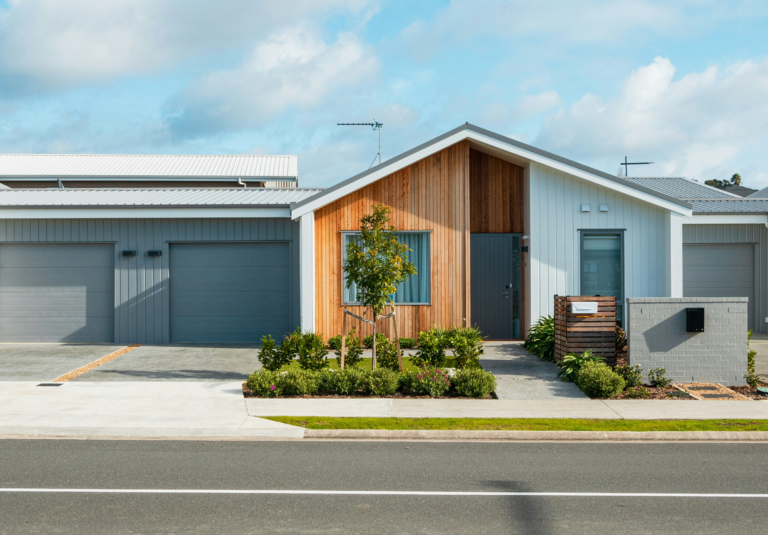Your home is not just a place to live but also a major financial asset and investment. According to Pew Research, home equity represents 45% of the net worth of U.S. homeowners. Whether you’re a first-time homebuyer or a seasoned owner looking to leverage equity, understanding your mortgage options is crucial. This comprehensive guide will cover the most common mortgage types, including refinancing options, helping you make informed decisions with top mortgage lenders.
Quick Links
1. Conventional Loans: The Standard Choice
When you hear the word “mortgage,” you’re likely thinking about a conventional home loan. These mortgages are typically the best choice for people with a stable financial outlook, from their ability to make a good-sized down payment to their creditworthiness and job stability.
Because the government does not back them, they’re more flexible—although they usually have stricter requirements and are more challenging to qualify for.
Of all the conventional mortgages, the one you’ll see most frequently from top mortgage lenders is a “conforming loan.” This means the loan adheres to the underlying conditions set forth by the two biggest mortgage guarantors in the U.S., Fannie Mae and Freddie Mac. Conforming loans have limits, which fluctuate annually in response to fluctuating home values.
Key Points:
- Credit Score Requirements: Generally 620 or higher.
- Down Payments: As low as 3%, but 20% avoids PMI.
- Interest Rates: Typically lower for conforming loans.
- Uses: For primary residences, second homes, or investment properties.
Best for:
Those who have good credit, a solid income, and can swing a sizable down payment.
2. Fixed-Rate Mortgages: Stability and Predictability
With a fixed-rate mortgage, your interest rate stays the same for the entire loan term. If you feel most comfortable with a predictable monthly payment, a fixed-rate loan will help you stay consistent and make budgeting simpler.
Key Points:
- Terms: Commonly 15 or 30 years.
- Interest Rates: Generally higher than adjustable-rate loans initially.
- Benefits: Consistent monthly payments and easier budgeting.
Perfect for:
Homebuyers who value consistent payments and plan to stay in their home long-term.
3. Adjustable-Rate Mortgages (ARMs): Flexibility with Risk
ARMs start with a fixed rate for a set period and then adjust periodically based on market conditions. If you’re willing to take on a little risk to pay a lower rate than a fixed-rate mortgage, an ARM may be for you.
Key points:
- Initial Fixed Period: 3, 5, 7, or 10 years.
- Adjustments: Rates may increase or decrease after the initial period.
- Best For: Those who can handle potential rate fluctuations and plan to move or refinance before adjustments.
Best for:
According to One Real Mortgage Loan Advisor Rebecca Richardson, this type of loan is typically better suited for experienced real estate buyers vs. a first-time homebuyer, as an ARM is typically a more complex loan and entails being less risk-averse.
4. FHA Loans: Accessible Home Loans for Bad Credit
If you have a low credit score or bad credit, then an FHA loan might make the difference. Backed by the Federal Housing Administration, these loans are designed to help buyers that would otherwise be discouraged or even disqualified from home ownership.
Key points:
- Credit Score: As low as 500-580, based on down payment.
- Down Payments: As low as 3.5%.
- Insurance: Requires mortgage insurance premiums.
Best for:
This is the best fit for those seeking home loans for bad credit. An FHA loan is also ideal for a first-time buyer or someone with less-than-perfect credit who needs a low down payment option.
5. VA Loans: Benefits for Military Members
If you’ve served in the military or have a spouse who has, then a VA loan—which is guaranteed by the U.S. Department of Veterans Affairs—may be right for you. The best VA loan lenders will help you discover the most advantageous situation for you and your family.
Key points:
- Down Payment: Often not required.
- Mortgage Insurance: Not required.
- Interest Rates: Competitive rates.
Best for:
Eligible military members, veterans, and their families looking for favorable loan terms should speak to one or more of the best VA lenders.
6. USDA Loans: Rural Area Financing
If you’re happy living in a rural area, then a USDA loan, which is backed by the U.S. Department of Agriculture, may be for you. It’s designed specifically to promote homeownership in rural and some suburban areas.
Key points:
- Down Payment: None required.
- Eligibility: Must be in USDA-eligible areas.
- Income Limits: Apply.
Best for:
Low to moderate-income buyers looking to purchase in qualifying rural or suburban areas.
7. High-Balance Loans: For Expensive Markets
High-balance loans fall between conforming loans and jumbo loans. They’re designed for high-cost areas where home prices exceed standard conforming loan limits.
Key points:
- Loan Limits: Higher than standard conforming loans.
- Interest Rates: May be slightly higher.
Best for:
Buyers in expensive housing markets who need more financing than a standard conforming loan offers.
8. Jumbo Loans: Financing for High-Value Properties
Jumbo loans are what they sound like: Larger mortgage loans for (much) higher amounts than Fannie Mae and Freddie Mac’s conforming limits. Jumbo loans are typically used for luxury homes or residences in high-cost areas.
Key points:
- Loan Amounts: Exceed conforming limits.
- Down Payments: Often 20% or more.
- Requirements: Stricter credit requirements.
Best for:
Buyers of high-value properties who need to borrow more than conventional loan limits allow.
9. Home Equity Loans and HELOCs: Accessing Home Value
If you’re in the market for a second mortgage, this option is offered by home lenders that allow homeowners to borrow against their home equity.
Key points:
- Home Equity Loans: Lump sum with fixed payments.
- HELOCs: Revolving credit line.
- Uses: Home improvements, debt consolidation, etc.
Best for:
Homeowners with significant equity who need to access cash for major expenses or investments.
10. Reverse Mortgages: Financial Flexibility for Seniors
If you’re over 62 and have financial goals you’d like to meet without selling your home or taking on monthly payments, a reverse mortgage may be for you. It allows you to convert part of your home equity into cash.
Key points:
- Eligibility: 62 or older with substantial home equity.
- Repayment: Due upon sale, move, or death.
Best for:
Older homeowners looking to supplement retirement income while staying in their homes. (This might not be the best option if you’re planning on passing the property down to your children.)
But Wait! There’s More!
If these ten common home loans don’t meet your financial qualifications and needs, there are plenty of “outside-the-box” home loans that mortgage companies can advise you about, including:
- Non-Qualified Mortgage (Non-QM): If you work in the gig economy or have other income streams that don’t show up on a W2, a non-QM mortgage is for credit-worthy borrowers who don’t meet conventional loan requirements.
- Physician Loans: Designed for medical professionals, including physicians and residents, these loans make home ownership feasible with low to no down payment, the option to exclude student loan debt (depending on the situation), and won’t necessarily require PMI.
- Foreign National Mortgages: If you’re a non-U.S. citizen who wants to buy property in the U.S., this loan may be for you. (Expect higher interest rates and down payments, plus a complex approval process.)
- Interest-Only Mortgages: If you need lower monthly payments and are comfortable paying down the interest for a set period (i.e., five or ten years) and not the principal, interest-only is a good, if risky, choice. (You’ll have to refinance when the interest-only loan is up.)
Choosing the right mortgage type depends on your financial situation, future plans, and risk tolerance. Whether you’re a first-time buyer, looking to refinance, or considering a second home, there’s likely a mortgage option that fits your needs. Consult with top mortgage lenders to find the best fit for your situation. Remember, thorough research and understanding of your options can significantly impact your homeownership journey. If you have any questions or need further assistance, feel free to reach out.

